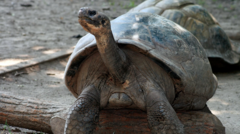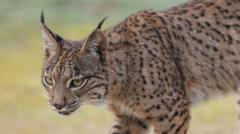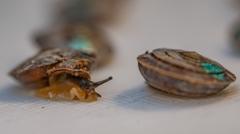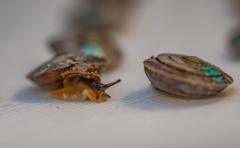Philadelphia Zoo celebrates a significant milestone as their critically endangered giant tortoises, aged around 100, welcome four healthy hatchlings, showcasing efforts in species conservation.
Giant Tortoises Welcome Baby Hatchlings at Philadelphia Zoo

Giant Tortoises Welcome Baby Hatchlings at Philadelphia Zoo
Historic Birth of Four Endangered Tortoises Marks Milestone for Zoo's 150-Year Legacy
A pair of Western Santa Cruz Galapagos tortoises at the Philadelphia Zoo have made history by becoming first-time parents. Abrazzo and Mommy, both approximately 100 years old, are the proud parents of four hatchlings, a significant event for the zoo, which has operated for over 150 years. The zoo expressed its excitement, particularly noting that Mommy, who has been at the zoo since 1932, is the oldest known first-time mother of her species.
The Western Santa Cruz Galapagos tortoises are classified as critically endangered, with fewer than 50 individuals residing in U.S. zoos. The exciting journey began on February 27 when the first of Abrazzo and Mommy's eggs hatched, with the remaining eggs following closely behind. Weighing between 70 to 80 grams, the hatchlings are currently being cared for within the Reptile and Amphibian House at the zoo.
Plans for a public debut are slated for April 23, coinciding with the 93rd anniversary of Mommy's arrival at the zoo. The hatchlings are part of a breeding program coordinated by the Association of Zoos and Aquariums, focusing on conserving species and promoting genetic diversity.
Jo-Elle Mogerman, the zoo’s president and CEO, shared her enthusiasm, stating, "This is a significant milestone in the history of Philadelphia Zoo, and we couldn't be more excited to share this news." She highlighted that anyone who has visited the zoo over the past 92 years has likely encountered Mommy. Abrazzo joined the Philadelphia community in 2020 after relocating from the Riverbanks Zoo and Garden in South Carolina.
Mogerman emphasized the zoo's vision for the future, believing these hatchlings will help contribute to a thriving population of Galapagos tortoises, ensuring their survival on a healthy planet for the next century.







